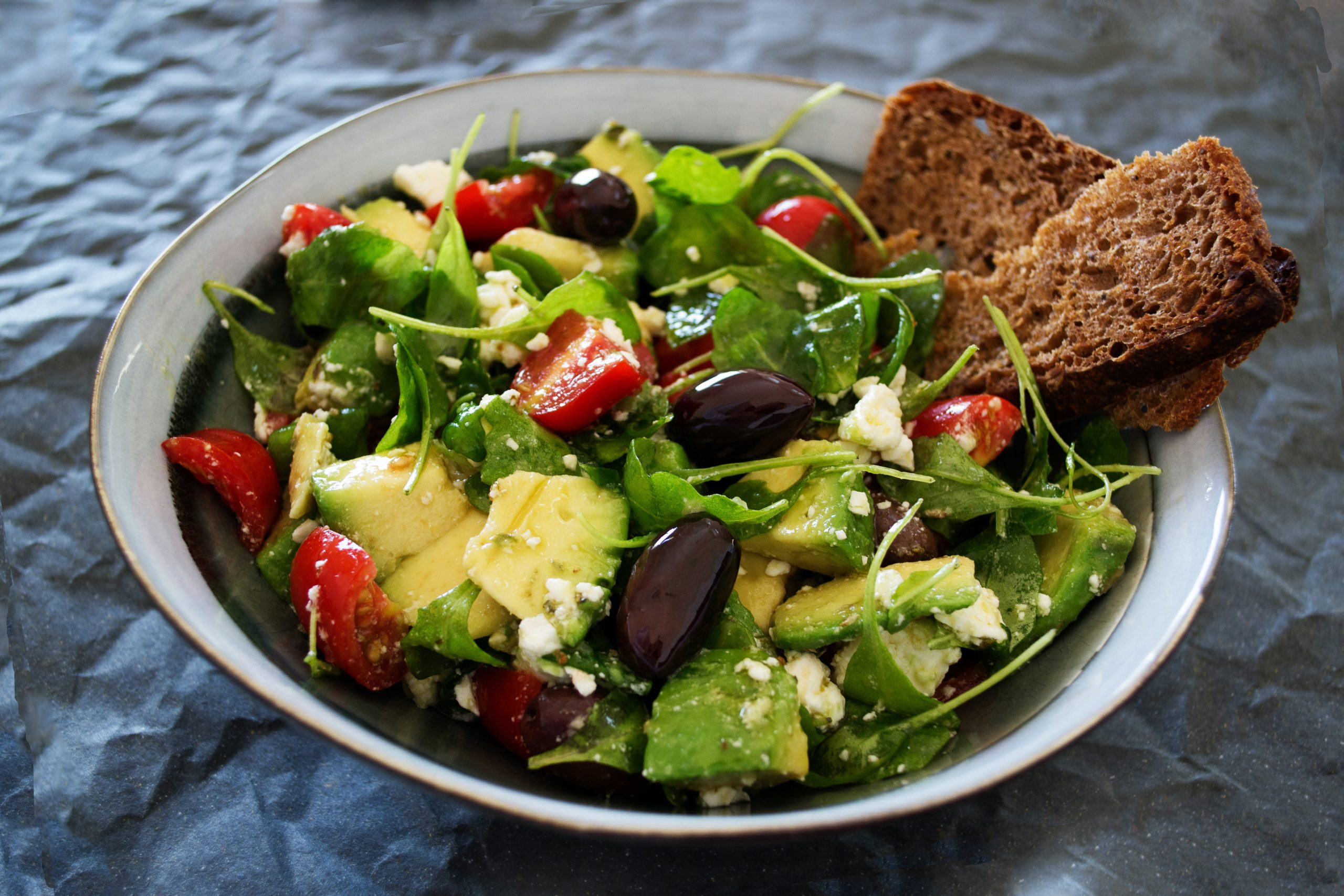In the health awareness calendar for 2024, February is Heart Health month.
New research was published on 22nd January, stating that premature deaths from cardiovascular disease have reached their highest rate in England for more than a decade. We have written extensively about nutrition to support a healthy cardiovascular system so this is a timely reminder that diet and lifestyle choices can help reduce the risk of factors such as high blood pressure, diabetes and obesity.
Leading doctors advise that the Mediterranean (Med) Diet is not only healthy for our hearts reducing heart attacks and strokes, but also in the fight against obesity.
In fact they believe that this may be a healthier way to eat for sustained weight loss that the conventional approach which is to limit calorie consumption.
The doctors, writing in the Postgraduate Medical Journal (PMJ), criticise the diet industry for focussing on calorie restriction rather than good nutrition.
Mediterranean diet and heart health
The Med Diet diet focuses on eating a variety of plant foods including vegetables, salads, pulses, fruit (in its whole form), plain nuts (raw rather than salted) and olive oil with other proteins from oily fish and some meat.
Author of the report, Dr Asseem Malhotra says the science for the diet is overwhelming: “It’s going to have an impact on their health very quickly. We know the traditional Mediterranean diet, which is higher in fat, proven from randomised controlled trials, reduces the risk of heart attack and stroke even within months of implementation.”
Where do you begin?
We should be looking to cut out ‘ultra processed’ foods as much as possible and be aware of the hidden sugars in the foods we eat on a daily basis to help with weight management and other conditions such as diabetes, high blood pressure and obesity.
A lot of nutrition and dietary advice can be overwhelming and for some people it seems just too difficult to make any changes at all.
My advice is to sit down and look at where you can swop one of your staple foods for a healthier option: it doesn’t have to be at every meal but once you start trying some different options, it gets easier to continue and experiment further.
- Swap white rice for brown rice; butternut squash or sweet potatoes instead of white potatoes; wholegrain sourdough bread instead of white.
- Sugary fruit yoghurts can increase your sugar load enormously – learn to like plain, natural yoghurt with your own added fruit and a sprinkle of cinnamon.
- Swap your usual cereal for plain oats (not the processed flavoured ones you find in individual sachets): A 25g portion of plain porridge oats, sprinkled over with a few plain seeds such as pumpkin, sunflower and linseed, stir in a couple of spoons of yoghurt – yes, whole fat Greek yoghurt is fine! – add some berries (frozen or fresh). Mix together and leave in the fridge overnight. In the morning sprinkle with a little ground cinnamon and eat up – yum! A good instant breakfast if you are in a hurry.
- Ditch the cartons of fruit juice and instead eat fruit whole put concentrate on lower sugar fruits such as berries, stone fruits, citrus, kiwi.
- Start drinking more water or herbal/fruit teas.
- Instead of always snacking on crisps or salted nuts, try some plain nuts and seeds
- Get into the habit of adding salad and vegetables wherever you can – to your breakfasts if you are having eggs eg steamed spinach, slices of avocado, some grilled tomatoes, or a lunch of a salad with soup instead of bread on the side.
- Try to have at least 3 green and coloured veg on your plate at every main meal. You don’t always need to include a starch such as potatoes, pasta or rice. Experiment with a tray of colourful roast vegetables including butternut squash, red pepper, tomatoes, courgette, onion, garlic – this is a great way of using up ‘tired’ looking veg that have gone a bit wrinkly in the bottom of the fridge.
More good reasons to go ‘Mediterranean’
Although this research was published a little while ago, it reminds us again why the Med diet is so healthy:
A study of over 7000 men and women at risk of cardiovascular disease, has concluded that a Mediterranean diet supplemented with either extra virgin olive oil or mixed nuts may cut the risk of cardiovascular events by as much as 30% in subjects at high risk of developing heart disease, as compared with people advised to eat a reduced-fat diet.
Researchers who led the study commented “These results support the benefits of the Mediterranean diet for cardiovascular risk reduction [and] are particularly relevant given the challenges of achieving and maintaining weight loss.
Interestingly, those in the research group were not told to reduce calories, which is often a major barrier to success in many dietary interventions, particularly the long-supported “low-fat” approach.
In fact, the Mediterranean diet encourages the inclusion of healthy nuts and oils, especially olive oil which should be used on salads and vegetables. Nuts should be unsalted or roasted to gain the most of their beneficial effects.
People who would like to follow the Mediterranean Diet as a healthier option should increase the intake of the key foods:
- Vegetables and salads
- fruit
- nuts (unsalted)
- fish (both white and oily fish)
- legumes (beans, pulses and lentils)
- extra virgin olive oil
- white meats and red meats in moderation
You should aim to decrease:
- all processed foods including meats
- fizzy drinks/sodas
- commercial bakery goods
- biscuits, sweets and pastries
If you would like to read the full research article please click on the following link:
Image: Dana Tentis pexels.com




